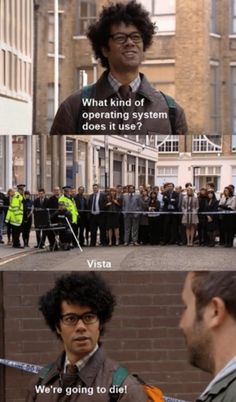The term “Cyber Security” has been coined circa 1989. It made its way into English language fast, especially after the Internet became a household concept. With the internet being a crucial part of everyone’s lives, it is essential for people to understand what Cyber Security means and the caution we need to take to properly execute good Cyber Security etiquette.
The Dawn of Cyber Security
People who used IBM PC’s and compatibles, prior to the dawn of the Internet, had their fair share of viruses. Spread mostly through unauthorized duplication of computer diskettes… Which is an ancient storage form to transport data from one computer to the other. Once the Internet became ubiquitous in our lives, transmission of viruses and other forms of malware became much easier.
“Cyber” in the word cybersecurity makes anything it precedes, futuristic and sexy. There is no denying it. And we need terms that are easy for people to remember. Especially when it comes to the digital sanitation of our lives.
Today, the biggest threat facing the average Joe, who spends time online, is losing data. Mostly because of a miscreant’s desire to inflict harm on others. Or worse, an organized crime ring’s efforts to extort money from unsuspecting people. They do this by encrypting their data and holding it hostage for a ransom. Hence the newly coined term “Ransomware”.
Whatever the name you call it with, it is something anyone should avoid like a plague. Cyber security is the concept, how this avoidance should be accomplished. We will use the term “malware” to define all the bedlam we come across from now on.
How does it Happen?
First thing to know is, how malware makes its way into our computers. You know the saying “a chain is only as strong as its weakest link” ? Well your strength against malware is only as strong as the weakest link in the data chain of custody. More often than not, this weakest link is you, the user. Not that you want to contract malware willingly but the miscreants upped their game and are out to mislead you to believe you are not doing anything wrong.
We see it pretty often. A lot of times it can be something as simple as accidentally clicking on an advertisement. Perhaps even something like an email that may look legit, could have embedded junk. One of the most occurring “my computer has been hacked” times is when someone mistypes even just ONE letter in a URL. This, in turn, leads them to a fake Microsoft, or Amazon. Sometimes it can even automatically download remote programs.
Here are few tips to be safe while you are online:
- Do not ever click any link sent to you in an email. Your bank wants to verify your identity? Type the banks URL on your browser by hand. You don’t know where that link in that email is going to land you at.
- If you are going to enter and information that should not be seen by unauthorized parties, et this be your password or a credit or debit card number, make sure you have that green lock on your address bar first, i.e., you are using a secure connection
- If you are using Windows, make sure at least the windows defender is turned on as an anti malware measure
- Again Windows-centric advice, Microsoft releases operating system patches, monthly, mostly against security vulnerabilities. Do not skip them or postpone them. They could be the make or break point for contracting malware*
* Unless you have Windows 7, or older…

Still on Windows 7? Check this out before you continue to use it.
Be safe out there.
Hi, My name is Josh Giesing. I am the Operations Manager at Computer PRO Unltd. In my free time, I enjoy reading and have a passion for learning.
